Meet Grace Anderson
Grace, an International Law and Institutions major, spent her entire sophomore year in Linkoping, Sweden.
Contact Grace at gramande@iu.edu.
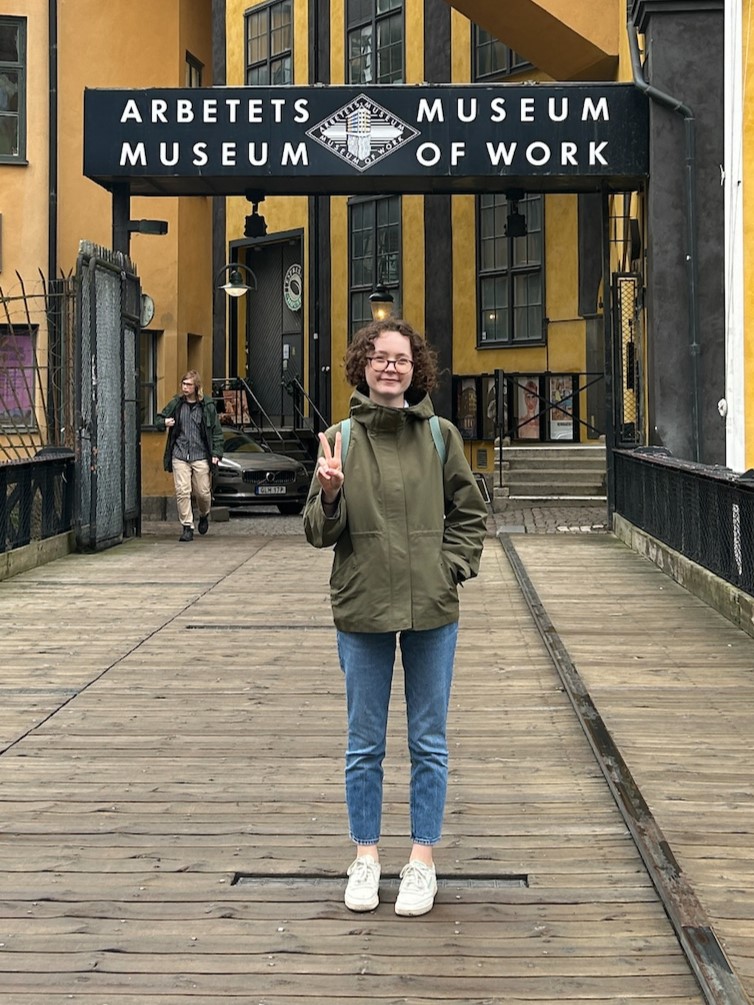
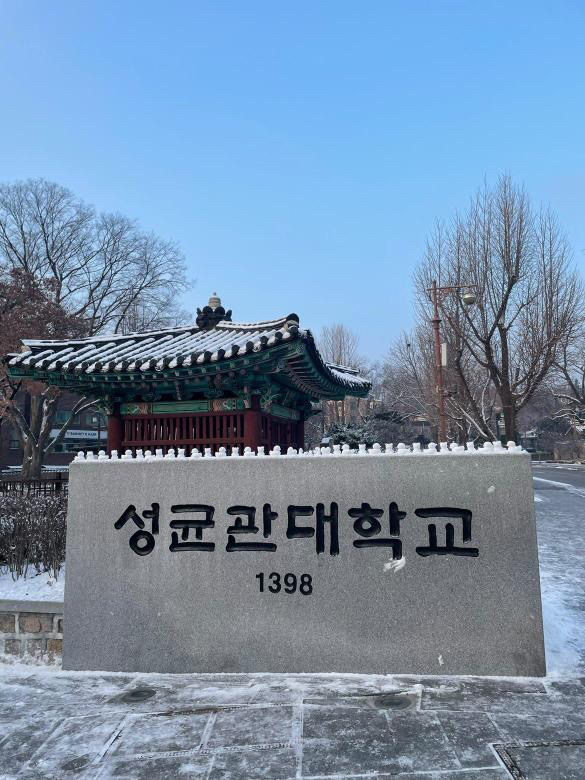
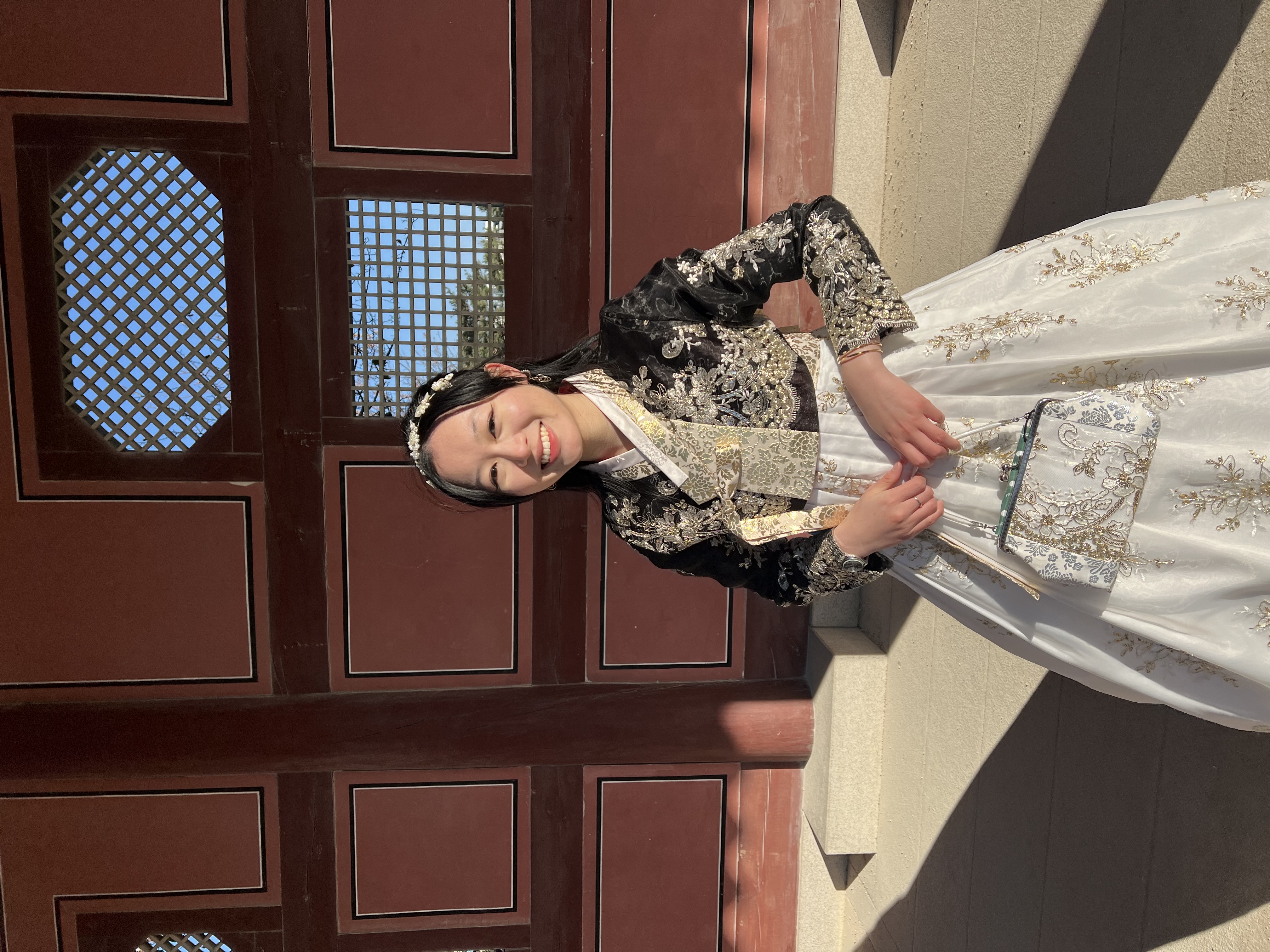
Grace, an International Law and Institutions major, spent her entire sophomore year in Linkoping, Sweden.
Contact Grace at gramande@iu.edu.
Social Life
When it comes to comparing social life in Sweden and the US as an international student, it’s very different from what you might be used to at IU, general interactions in the Midwest, or your own personal culture. Swedes in general are very reserved and can appear not very inviting at first. However, they are very kind and if you ever need help with anything they’ll be willing to help you. It’s a matter of breaking past awkward boundaries in Swedish social standards and getting to know them better. It’s a slow but rewarding process that requires constant contact and communication - so don’t be worried if you don’t make Swedish friends on the first day of classes, they might just need some time to warm up to you!
Moving on, you will meet so many international students at LiU and be able to make friends quite easily, as many gravitate to one another due to shared social circles or environments. There are multiple student associations (eg. ISA, ESN, UPF, ect) that hold events which are catered to international students and many of them are targeted at making friends/building cross cultural relationships. These associations hold events across the entire semester and are very active during the Welcome Week(s), so be sure to attend some of their events - many of them are advertised on the LiU instagram or association instagrams.
Housing
When choosing housing in Linköping, you have a couple different options. The easiest and potentially most affordable is getting housing through the university. The university provides off campus housing in a neighborhood called Ryd - many students live here - which is 10-15 minutes walking distance from the university. In the buildings that they provide (which are called student corridors), you will live with other students at LiU (in my floor, there were eight rooms) on your designated floor. This is a great way to make friends while you’re at LiU, some of my best friends were the people that I lived with. If you’d like to get housing through the university, just make sure to note it in your application and LiU will hold a room for you. While I was in Sweden, my monthly rent was between $350-$400 USD per month.
If you don’t want to get accommodation through the university, you’ll have to get onto housing waiting lists, gather points, and compete with other students for spots in Linköping. Also, monthly rent may be more expensive and more difficult to pay depending who your landlord is.
Academics
Academics in Sweden have a more laid back approach compared to the US. This doesn’t mean that courses or quality are worse, but it is different compared to our academic culture at IU. Courses are structured in a different way as well and require that you focus on one or two courses during a short amount of time. In my experience it requires a lot of time management and discipline to get assignments done on time, as professors emphasize independent study heavily in Sweden.
All of my courses were taught in English and there is a fairly large selection of courses to choose from in English, so you shouldn’t be too limited on what you can take. Another thing to note is that many courses' final grades are based only on a final exam or a few assignments, so it is very important that you are paying attention and understanding material in order to get good results. Most of my classmates were fellow international students but sometimes you might have some Swedish classmates!
Traveling
Traveling around Linköping is straightforward. There is a bus and train system called Östergötatrafiken and through the app you can buy tickets for the bus or train. Also, the most common and cheapest form of transport in Linköping by bike, I’d highly recommend getting one! Other good apps to download for traveling around Sweden are SJ, Flixbus, Omio, and Flygbussarna.
If you want to go outside of Sweden, you can book buses, trains, or planes and its fairly affordable if you book in advance and plan out your traveling plans. European transport is very well connected and it's easy to get from one place to another if you’re prepared. Make sure to look ahead at local transport in different countries to make the most out of your travels!



Yennie, a Psychology and Speech & Hearing Sciences double major, spent the Fall 2023 semester at SKKU in Seoul, South Korea.
Contact Yennie at yentran@iu.edu.
Social Life
At first, I was quite scared that I wouldn’t be able to make friends. Here in the Midwest, it is so normal to strike up a conversation with a stranger at a bus stop or cafe to make a new friend. In Korea, doing this is not within social norms. Nonetheless, making friends is something you shouldn’t worry about! You will meet students from all over the world that are eager to be friends! If you live in a dorm, it will be even easier. It was common to hear people in dorms know their entire floor and have friends on other floors as well. Koreans are quite reserved, but are often happy to talk to you as well. There are a few English friendly clubs at school like HI-Club and fashion club, but options are pretty limited. If you want to make friends outside your school and area, there are many events coordinated by exchange programs and social groups that you can attend to meet new people. Common ones include language exchange parties and hangouts.
Seoul itself hosts many city events, so you will always have something cool to attend or do!Popular event spots include DDP, Gwanghwamun Square, and Hangang River. Be sure to check out all the cool cafes too! Check out Ikseon-dong if you like cafe hopping, Myeongdong for shopping, and Hongdae, Gangnam, and Itaewon for nightlife. Eat to your heart's content at Ungteori Saenggogi, an all-you-can-eat KBBQ spot for cheap in Myeongdong! Make sure to attend the school festival! It is the most exciting event of the semester that is hosted by SKKU. You might get to see some of your favorite artists perform for free too!
Housing
Living in the school dormitory is the cheapest and the most convenient, as they are closest to the school. The biggest downside to the dorms is curfew (1am-5am). You also cannot bring outsiders into the dorm and your roommate is chosen randomly. Dorming is also the best way to make friends. You can also live in an AirBnB, but it is much more expensive and hard to find. If you choose AirBnB, start to search for a place to stay at least a month before departure. Make sure your location is within a reasonable distance to school, as Seoul is huge. If your commute to school is 30 minutes by subway, expect it to go up to 50 minutes when you commute to school during morning rush hour. For AirBnB, make sure you are able to communicate with your host, as you will need information from hem later on when applying for your Korean ID.
Academics
There are classes only taught in English, but you are able to enroll in ones instructed in Korean as well if you are comfortable with the language. Rather than having much homework, your grade is mostly made up of exams, papers, and projects. Throughout the semester, there were only about 3 school days off. There is an emphasis on self-learning and studying, so make sure to keep on top of it, so it doesn’t catch up to you during midterms and finals week. Those weeks can be overwhelming– you will see 24-hour cafes full of students studying at this time! You will probably be one of them. You will also find yourself ordering your 3rd iced americano.
Enroll in a mix of your major classes, culture classes, and ones that sound interesting to get the full experience! The culture classes are made for exchange students, so you will meet people from all over the world. For the other ones, you will likely have some Korean classmates as well! If you intend to enroll into a Korean language course (highly recommend), sign up immediately as they fill up quickly!
Traveling
Subway and using the bus is the most common and most efficient way to get around. In order to use them, you will need to obtain a T-money card and load them with cash to pay for every ride. Cards can be purchased at convenience stores and in vending machines at subway stations. These cards can only be loaded by cash, so make sure to bring a good amount (most of my money went towards transportation!). Seoul is also very walkable (and safe!), so if public transportation is busy, feel free to take a nice stroll to your next destination. Signs regarding directions and destinations are both in Korean and English, so navigation is easy once you’re used to it. For directions, Korea uses apps called Kakao Map or Naver Map (this is more English friendly). Call a taxi using Kakao T if you’ve had a night out and the subways are closed. Taxis are cheap!
I had lots of time to travel around Seoul, especially on weekends. Seoul is really big, so 40 minute commutes are normal. I also was able to go to Busan twice! You cannot go there by subway, and will need to buy bullet train tickets to go. If you go, have a day to relax at Spa Land at Shinsegae Centum City– the world's largest mall (it’s only around $10 too)! Also, Busan is known for seafood, especially raw crabs (I recommend Golmok Marinated Crab near Busan station). Many of my friends also went to Jeju Island and had a great time. Buy plane tickets early if you want to go.
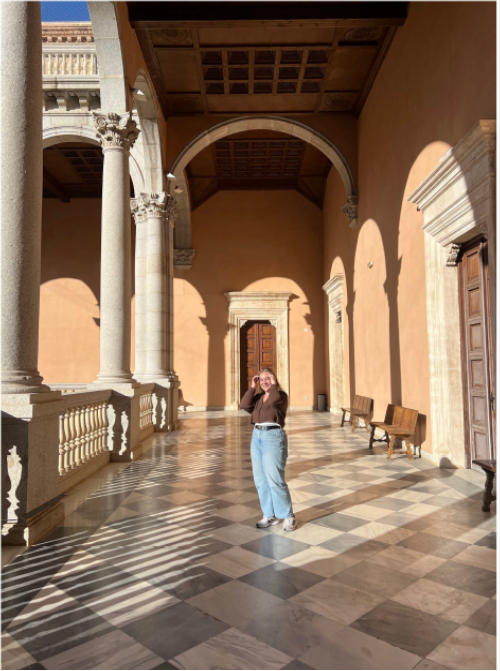
Makenna is pursuing a BA in History and a BA in Economics/Political Science with a minor in Spanish. She spent Fall 2023 on an ASPIRE Exchange in Madrid, Spain.
Contact Makenna at makslaug@iu.edu.
The classroom dynamics will be mostly what you’re used to; the grading setup is what will be the most different. Get a thorough understanding of how the grading system works and ask your friends how they study. The midterm/final is where you see 80-100% of your grade. There is little continuous assessment, so you will need to be self-motivated when it comes to studying.
Personally, I truly recommend that you do not take difficult classes. No matter how studious you are, you will end up wanting to spend more time exploring than studying and you will want to limit how stressed out you will be. Instead, I recommend taking courses that will challenge your perspective! The best courses I took were in international relations and history. Having a seminar with students from around the world on these topics was an invaluable experience! I would also recommend topics such as literature and film.
UC3M’s campus is in Getafe, but I recommend you live in Madrid. There is a robust public transportation system from Madrid to Getafe, and commutes tend to be shorter than your Maps app will tell you. It will be much easier to take part in the social/cultural scene if you live in Madrid, and you’ll be spending more time there than Getafe anyway.
UC3M is fantastic about advising you on student leasing websites, so I recommend you checkout the list on their website. I used ALUNI.Net and lived in the San Isidro neighborhood near the Madrid Río. There are many different neighborhoods in Madrid with vibrant cultures, but don’t feel overwhelmed when making a choice (the only neighborhood I would advise against living in is Lavapiés). ALUNI only does housing for students so I had an apartment with five other girls (3 Italians, 2 Germans), who were all attending different universities in Madrid, so it was a great way to get out of the UC3M bubble and learn about other cultures.
In terms of public transportation: you will want to get a Public Transport Card (TTP) as soon as possible. You will be qualified to get an Abono Joven (which is much cheaper), and I recommend you go on the Metro de Madrid website for more information on the process. You can even have it mailed to your housing ahead of time. If you do in-person, the organization CityLife Madrid can help you get a time slot to apply for it. The TTP lets you ride any metro and bus line in Madrid for a monthly fee (including a line to Toledo) and it is fantastic!
In terms of other types of travel: don’t feel like you have to plan out your travel immediately. You’ll still be able to find cheap travel/accommodation close(r) to your travel dates and it will help if you meet new people whom you want to travel with.
My top three tips:



Iris spent Fall 2022 in Ecuador, studying biology and strengthening her Spanish minor at the Universidad San Francisco de Quito (USFQ).
Contact me with questions: irisrami@iu.edu
Academics
I took many Spanish STEM classes such as evolution, the biodiversity and resources of Ecuador, and biotechnology of animals. I also took two English literature courses on fantasy and espionage. I’m a senior and given what I had already taken at IU, there were not a lot of courses to choose from at USFQ. But I think it is particularly good for biology, psychology, arts, and social justice.
Speaking Spanish is highly recommended since many classes are completely in Spanish including the coursework and lectures however, there are still a large range of English classes although many are very specific and may not apply for your major such as the 2 English literature classes I took. Other than that, many of the Ecuadorian students were taught English in primary school so you don’t have to worry if your English is not the best. However, traveling to more rural parts of Ecuador may be different.
Housing
Since USFQ is a small private university and it does not have its own housing, exchange students get to stay with host families. I was the only student at my house in a family of five. My host parents were kind, provided me with plenty of food, tidied my room and had movie nights or a coffee sit down with me. It took about 25 minutes to get to campus by bus and walking. I advise students to live in Cumbayá or Lumbisi, rather than in Quito, in order to be closer to school and avoid the traffic of Quito.
Travel
I traveled to several places around Ecuador on the weekends, some on my own and some trips arranged by USFQ, such as a visit to its Tiputini biodiversity research station in the Amazon rainforest. My trip to the Galapagos Islands was memorable was independently planned, I visited 4 islands, trekking through underground lava tunnels, identifying endemic birds such as the blue-footed booby and even snorkeling at water that was 400 ft deep!
Like every country it is best to always remain aware of your surroundings and personal belongings. Unfortunately, pickpocketing especially on crowded areas like buses or getting valuables stolen are an occurrence that can be avoided. I can attest that many Ecuadorian students are friendly and interested in socializing and collaborating, however they feel hesitant at times because the incoming international students tend to band with each other so make in effort to diversify your friend groups!
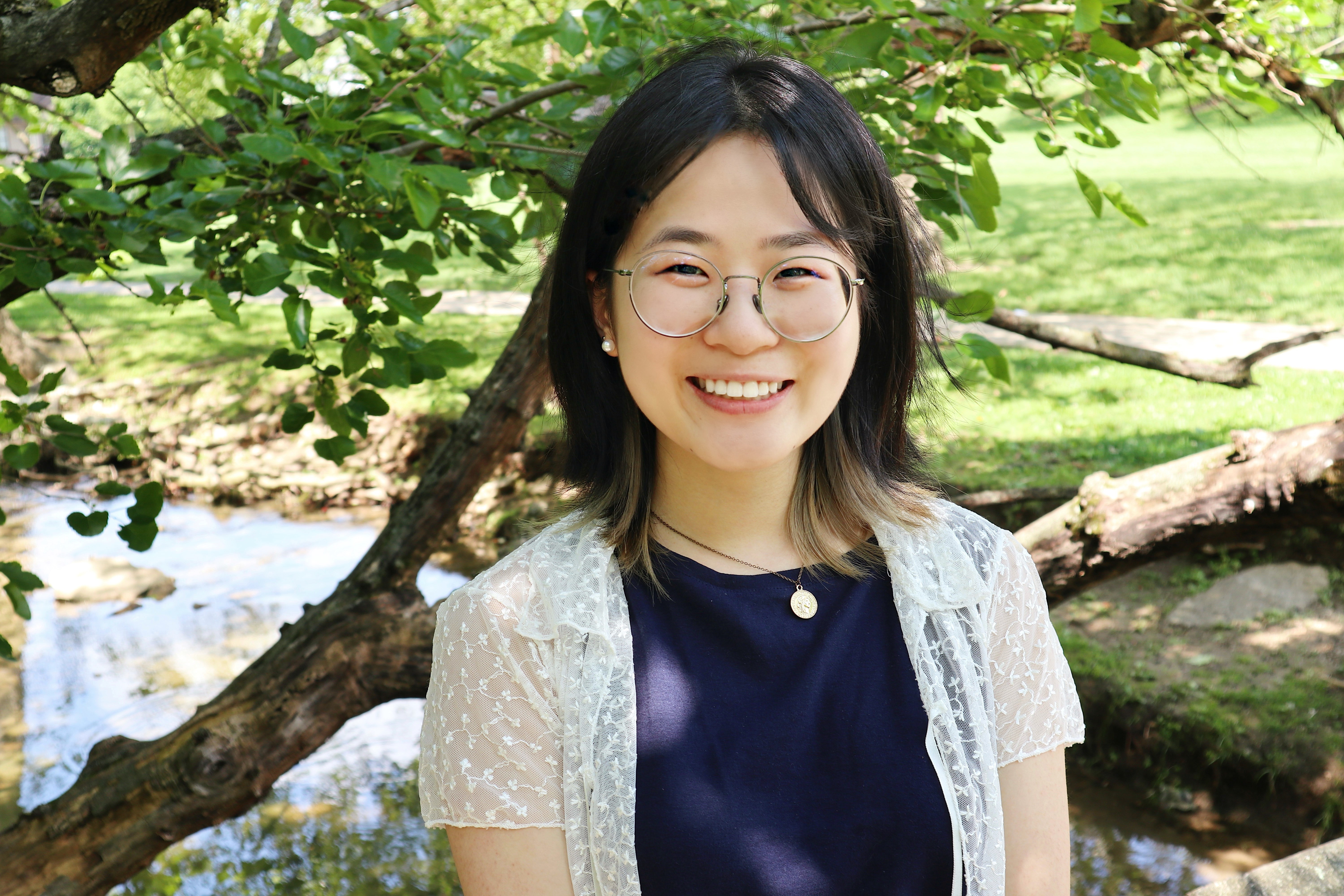
Audrey spent Fall 2022 in Manchester, England, studying biology and social sciences at the University of Manchester.
I would encourage future exchange students to explore some courses that are interesting to them instead of fulfilling credit, if their degree plan allows them to. I took two courses at the University of Manchester purely out of interest. Definitely look into the University College of Interdisciplinary Learning (UCIL) courses - the topics are usually taught by professors who're especially passionate about the topic.
I’d also note that since local students are largely restricted to classes in their department, many classes teach material that is much more niche and specialized than the equivalent class at IU. Don’t feel discouraged if you feel like the content jumped in difficulty at your exchange university – there may be a good reason why.
Finally, the lack of homework and low volume of graded material makes time management the single most important determinant of your final grade at UoM, in my opinion. Procrastinate with caution!
You’ll very likely be living in a dorm that is either catered (dining included) or un-catered (cook for yourself). The UoM website does a great job outlining the different accommodations they offer, pictures included.
UoM is in Manchester, a much larger city than Bloomington. My experience with the city itself had positives and negatives: while it is a vibrant area with endless things to do, I also felt unsafe at times. My university housing was not close to the central part of campus – about a 45 minute walk to some of my classes. I would urge students to find others to walk with, apply for housing ASAP to request a closer dorm, and share their location with close contacts.
You’ll have no trouble meeting other exchange students and locals at UoM. Surprisingly, there aren’t many others from North America, but plenty from all over Europe and Asia. Don’t be afraid to attend all the events the Residential Life team holds at your dorm and the Student Union during Freshers Week (the equivalent of Welcome Week at IU)!
For me, the most effective way to battle homesickness was to get involved in clubs and organizations. I attended several meetings for clubs I had no interest in at first but stayed because of the people I met in them.